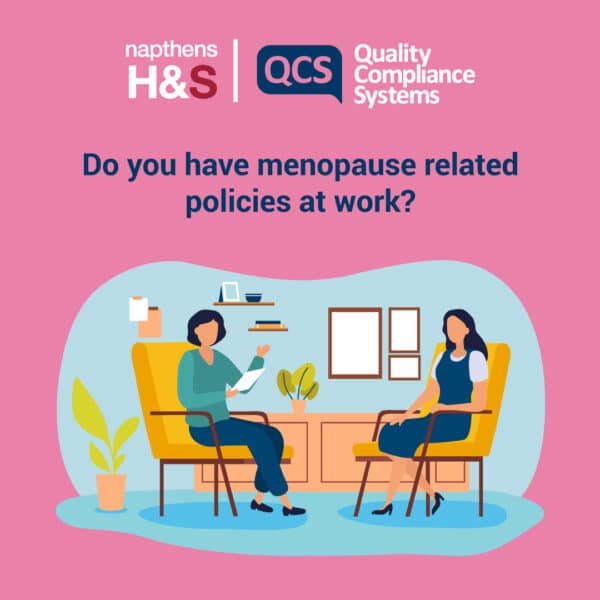Helena Newberry, Employee Relations Advisor at Napthens on the importance of introducing a workplace menopause now.
Recent research has found that 10% of women leave the workforce and one in four consider leaving due to the menopause.
These figures reportedly cost UK businesses 14 million working days each year, which is the equivalent of £1.88 billion in lost productivity each year.
Although menopause is not officially classed as a disability, menopause related symptoms are more than ever being recognised, as having “a physical or mental impairment that has a ‘substantial’ and ‘long-term’ negative effect on the ability to do normal daily activities,” and ¬¬therefore, meeting the legal definition of a disability under the Equality Act 2010. This is evident in the figures from HM Courts and Tribunals Service which show that cases which centred around menopause in England increased from five cases in the whole of 2018 to ten cases in the first six months of 2021.
Data from Organisation for Economic Co-operation and Development (‘OECD’) show that around three quarters of people working in health and social care are women. Considering this, health and social care businesses play an important role in the introduction of menopause related policies which can be put in place to support women in the workplace, at all stages of life.
Workplace menopause policy
Support for women going through the menopause can take the form of many ways. Recognising that menopause can have an impact on work and implementing a workplace menopause policy is one of the foundations to supporting women through this time. Businesses should consider how this can be introduced with feedback from women in the workplace and consult with staff through the introduction of peer support groups who will be able to provide meaningful input to the creation of the policy.
Employers must also consider how menopause related symptoms impact existing policies in place, such as any incumbent absence management or capability policies, and where needed, adjust these for women impacted at work by menopause symptoms.
Managers need to offer support
Women should be encouraged to have open conversations with their manager, if their symptoms are having an adverse impact at work. Employers need to ensure appropriate training is provided to managers so that they can provide occupational support to their team where needed. Any negative stereotypes and attitudes about middle-aged or older women within the workplace must be challenged by managers to ensure a culture of inclusion is encouraged throughout the business. It should also be factored into any support policies that menopause is still seen by some as a taboo subject and women can feel uncomfortable discussing any menopause related issues with their manager. Where appropriate, access to occupational health services should be offered in these circumstances.
Menopause is a natural life event, however for many, the symptoms can have a considerable negative impact on their life and work. Consequently, now is the time for menopause in the workplace adjustments to be addressed by employers to prevent women leaving the workplace prematurely.
If you have any queries or are in need of specific advice in relation to any Employment law query, please contact a member of the Napthens Employment team who are able to offer 30 minutes of free advice to QCS members.




